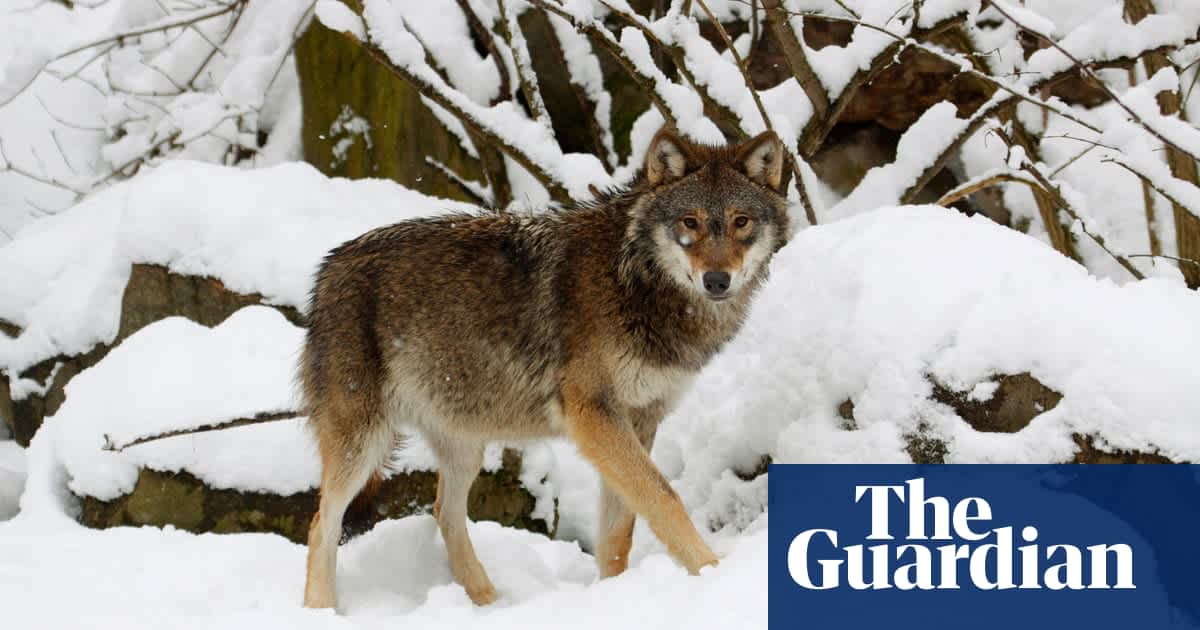Five entire families can be killed, totalling 30 wolves, in move campaigners say is illegal under EU law
Sweden’s wolf hunt starts on Thursday, with the country aiming to halve the population of the endangered predator.
The Swedish government has given the green light for five entire wolf families, a total of 30 wolves, to be killed in a hunt campaigners say is illegal under EU law. Under the Berne convention, protected species cannot be caused to have their populations fall under a sustainable level.
Sweden’s wolf population dropped by almost 20% in 2022-23, and there are now 375 recorded individuals. The decline is due to increased hunting pressure, and the government announced earlier this year that it intended to halve the population, with 170 wolves becoming the new minimum level for “favourable conservation status”, instead of the current minimum of 300.
Critics say this will endanger the wolf population, which has historically had a fragile stronghold in Sweden, partly due to overhunting. Sweden had no breeding wolf population from 1966 until 1983, and the species is listed in the country as endangered on the International Union for Conservation of Nature red list.
The plans are part of a wider trend, with the EU intending to loosen rules around wolf persecution, allowing countries to increase the number they can kill.
The European Commission is considering revising its habitats directive to reflect the fact that wolf numbers have increased, particularly in alpine and forested regions of Scandinavia and central Europe. Farmers say the increased population poses a threat to livestock such as sheep.
Earlier this month, members of the Berne convention on the conservation of European wildlife and natural habitats voted to change the status of wolves from a “strictly protected” to a “protected” species. This change will enter into force on 7 March 2025 and will make it easier for the EU to change the habitats directive to allow more wolves to be shot.
But environmentalists have said that instead of changing the laws to allow wolves to be culled, farmers can take preventive measures with electric fencing.
“We are very critical to the path that the EU is now taking, downgrading the protection status of the wolf,” said Magnus Orrebrant, the chair of the Swedish Carnivore Association. “If the EU follows up the latest Berne convention decision by changing the wolf’s protection status in the habitat directive, the result will be very negative not only for the wolves, but for all wildlife in Europe.
Sign up to Down to Earth
The planet’s most important stories. Get all the week’s environment news – the good, the bad and the essential
“In Sweden, it will have no immediate impact on the wolf population, since the Swedish government since 2010 has been blatantly disregarding the wolf’s special protection status, allowing a yearly licensed quota hunt and thereby breaking EU law. We filed a formal complaint to the EU commission, leading to an infringement procedure against Sweden, as yet to no avail.”
Léa Badoz, the wildlife programme officer at Eurogroup for Animals, a lobby group, said: “The wolf is unfortunately the latest political pawn, a victim of misinformation. Downgrading protection will not solve the challenges of coexistence, nor help farmers.”
The Swedish environmental protection agency has been contacted for comment.
Source: www.theguardian.com
